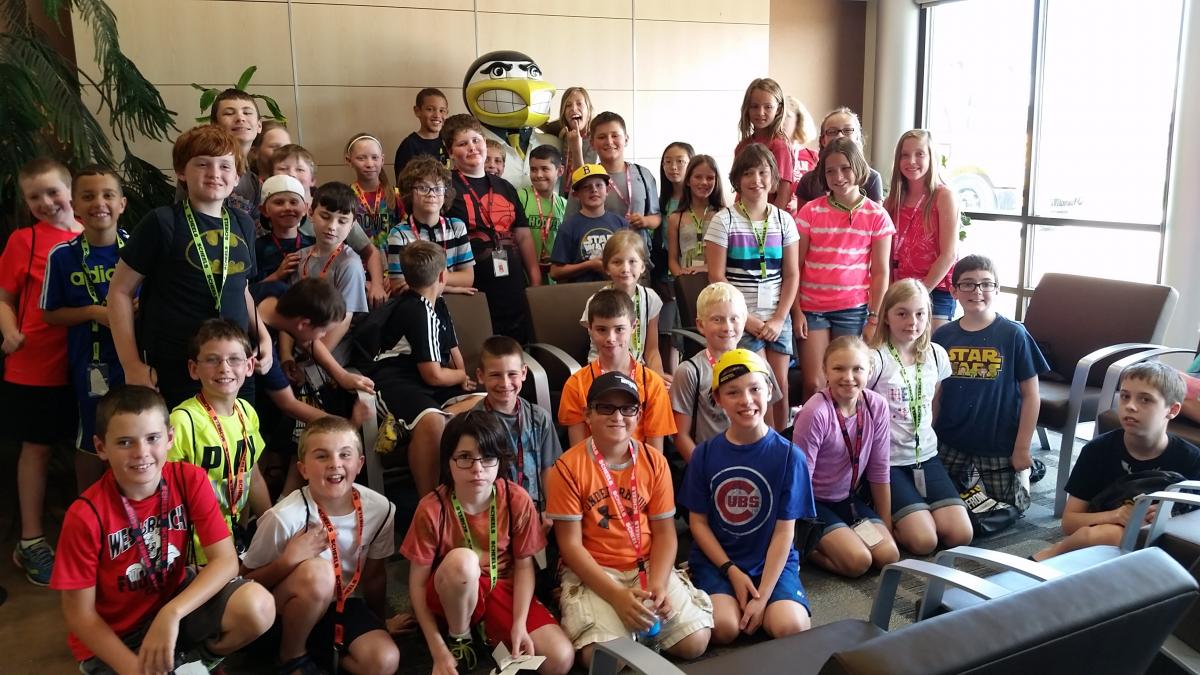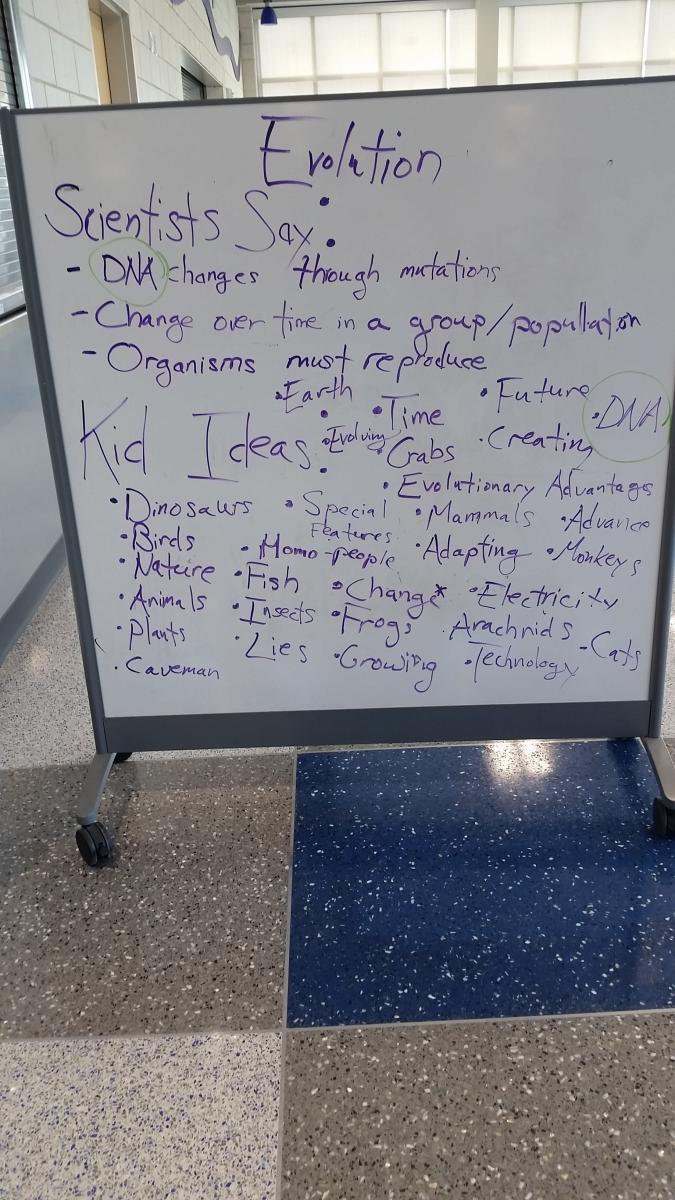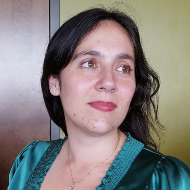NCSE has been focusing more on outreach. We want to find ways to help communities connect positively with science education, particularly on the issues we care most about: evolution and climate change. As part of the Science Booster Club Project, I’ve been developing a lot of new outreach strategies. In a first ever experience for NCSE, I spent last week running a free science camp for fifth and sixth graders focused on evolution. In this multi-part blog series I’ll share some stories of how we developed relationships with creationist students; provided kids with quality, engaging evolution education; and had a great time. If you’re interested in creating an opportunity like this for your community, I hope this series will give you some ideas and advice.
My first piece of advice? Don’t be like me.For someone who is pretty smart about some things, I am really dumb about kids—and I have two of them! Going into this camp, I thought that fifth and sixth grade students would be totally mature and civilized. Definitely able to take care of themselves, and not at all likely to draw on their faces with permanent markers. Sadly, I was wrong on all of these points. My decision to spend a week with dozens of nine to eleven-year-old children was, to put it as mildly, an extremely loud experience.

I realized the extent of my misconceptions on the first day, when I faced our initial group of forty students in the cafeteria of our partner school. Shockingly, it turned out that they were…kids. I thought they would be interested in quiet journaling, but they were more interested in loudly being ninjas. More on them in a minute. First, you need a little background on how we got all those kids there.
When we offered this free camp we wanted to make sure it reached populations that would really benefit from this opportunity. In particular, we wanted to get rural kids who would be less likely to have access to similar enrichment activities. To reduce financial barriers, we not only offered the camp at no cost, we also supplied all the kids with lunch, snacks, and supplies. This absolutely would not have been possible without our generous donors, including the ACT Corporation, the European Society for Evolutionary Biology, and Integrated DNA Technologies. On top of significant grants from those organizations, we received incredible in-kind donations from Scheels Sporting Goods, Subway, and most particularly Blick Art Supplies, who gave us nearly a thousand dollars worth of free art materials.
How did we get these grants and donations, you might ask? Well, we asked for them. I and other Booster Club members wrote and called major businesses in the area and asked colleagues to keep us informed about grant opportunities. Once we had funding and knew the camp was really going to happen, we called local businesses that had things we wanted and asked them if they would give us anything. Some club members were initially very nervous about doing this, but everyone discoverd it was not very hard or scary. The worst thing was when people didn’t give us free stuff for weeks on end, but trust me, you'll learn how to deal with that pain.
Getting the money and the goods necessary for the camp was one challenge. Another was getting the kids. To reach rural populations, we asked for help from rural teachers. We made a flyer about the camp and distributed it to every fourth and fifth grade teacher in the rural school districts outside Iowa City, so that they could inform the parents. We asked the teachers to help us find the kids who could benefit from this camp the most: rural kids who loved science and who had limited access to other enrichment activities. The teachers really came through, using their specialized knowledge of their communities to help us find lots of kids we would not have otherwise been able to reach. Some of the rural school districts also connected us with home-schooled children who were interested in science and would benefit from both the educational and the social aspects of the camp.
On the first day of the camp, my volunteers and I had the fruits of our labor before us. A group of primarily rural students, who were socioeconomically, linguistically, and ethnically diverse. We had good, healthy food to feed them and lots of cool stuff to do. I led the kids through a discussion of the scientific method, using their journals to do individual and small group brainstorming before sharing with the whole camp. Then I asked them to move on to the topic of evolution. What words came up when they first thought of evolution?
“Lies!” shrieked one little camper. “It’s lies!”
I nodded my head and wrote the suggestion on the board. We were ready to roll.
If you try to run a camp like this, you are going to run into this issue! Check out the next installment to see where to go from here.


